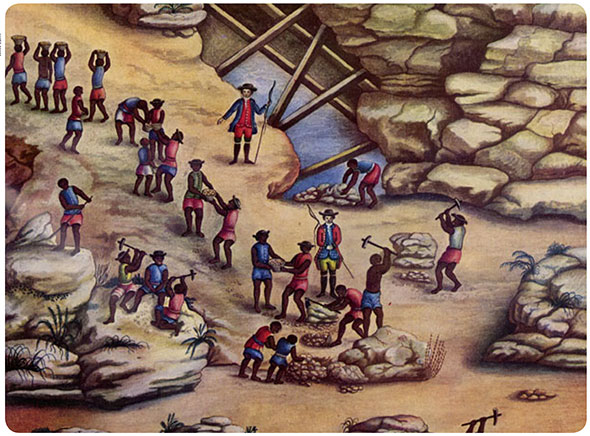Blogs
Harmful activities

Brazil is a country known worldwide for the great amount of natural resources that are contained in its territory. Here we can find all kinds of necessary resources, such as precious metals, abundant vegetation, water, among several others. For these and other reasons, many nations have economic interest in the extraction of these resources. In addition, the government itself uses them to see the country grow economically. Due to these factors, exacerbated extraction activity causes highly environmental damages and social impacts that in the future may be irreversible.
In addition to agriculture, mining is one of the oldest activities in the country. From the time of the colonization the territory was the object of expeditions with the intention of finding precious ores to export them to the Portuguese crown. With the passing of time and the growth of Brazilian industry, it has become increasingly important to carry out this activity, which often occurs without great concern for the environment, with miners at risk daily or with those who live near the mines.
Among the main Brazilian mining areas is the iron quadrilateral, located mainly in the region of Minas Gerais with an extension of about 7000 square kilometers with about 29 billion tons of mineral resources that make the region important due to the production of about 60 % of Brazilian mineral. Due to the highly active activity, the region brings with it big impacts such as water pollution, soil degradation, alteration of rivers and destruction of flora and fauna. With regard to climate change, the main damages occur due to deforestation in search of precious metals, the cutting of the vegetation is included in the factors that contribute to the global warming. In addition, there is the air pollution due to the burning of the mercury used in the extraction.
Regarding the positions on this natural resource, there are generally no large indigenous participations, since these had their voices silent on the subject since the colonial period in which they were enslaved precisely to work in the mines. Regarding Non-Governmental Organizations, the positioning is directed so that the expansion of the extraction areas does not occur, factor that diverges from the opinion of the current government that wants to increase the areas to liberate a large area of the Amazon forest that is protected for mineral extraction.
The most plausible ethical response at the moment would be to reduce the number of extractions and to initiate the development of research aimed at discovering less harmful ways of performing such activity. Unfortunately, the suspension of mining is something almost impossible to occur at the moment, because it is one of the greatest generators of the current Brazilian economy.
Below we can see a short video to complete the text´s idea
Post comment
1 Comment(s)
Hi Ingrid,
This is an excellent post! You have responded to the guiding questions, included the perspectives of different interest groups and described in detail the case. I also like that you included a photo and a video to support your writing. Thank you for your effort and commitment to your learning and sharing.
Allison

Allison Bruce
Oct 30, 2017